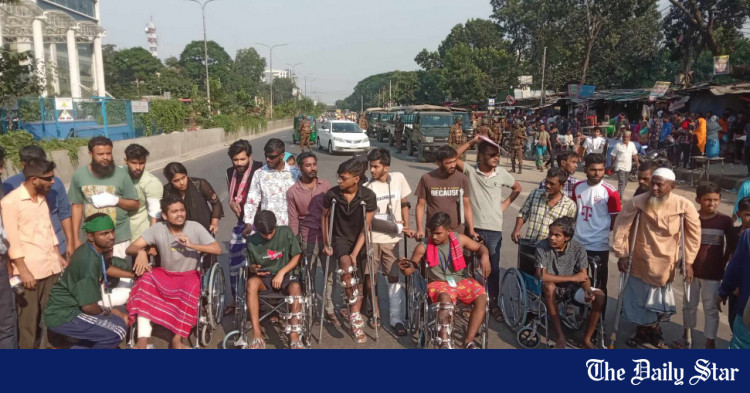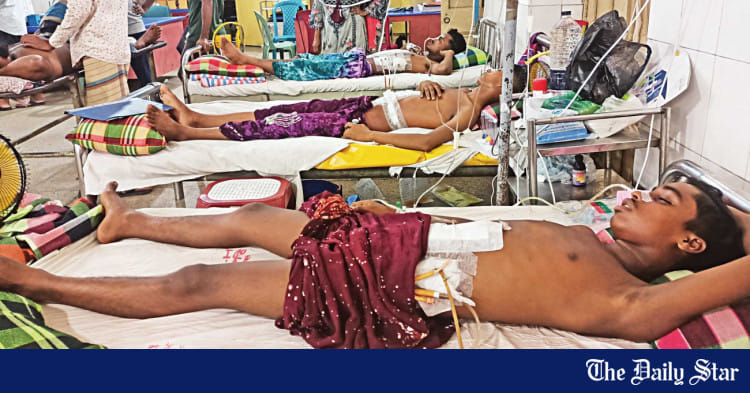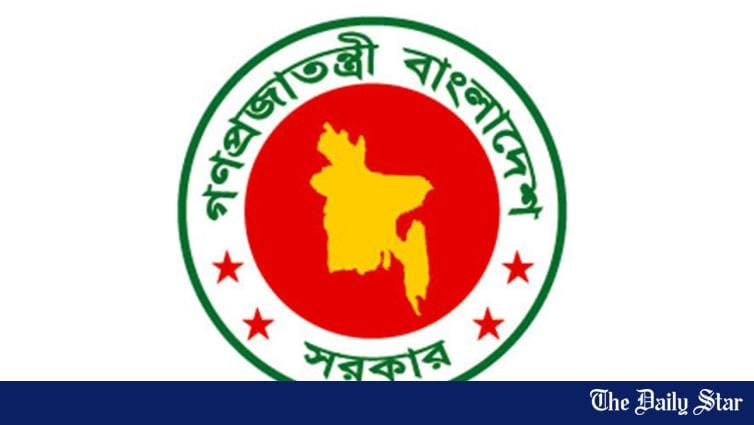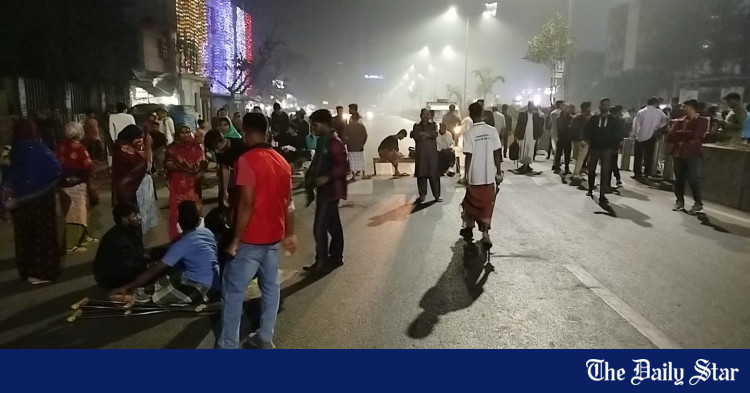Saif
Senior Member
- Joined
- Jan 24, 2024
- Messages
- 17,281
- Likes
- 8,334
- Nation

- Residence

- Axis Group


Injured of uprising to get lifetime healthcare
The interim government on Thursday announced that the people injured in July-August student-led mass uprising will get a lifetime free medical services at all government hospitals...
 www.newagebd.net
www.newagebd.net
Injured of uprising to get lifetime healthcare
Staff Correspondent 15 November, 2024, 00:15

One of the injured victims in the student-led mass uprising gets on a car to attend the meeting with the interim government advisers at the secretariat in Dhaka on Thursday. | New Age photo
The interim government on Thursday announced that the people injured in July-August student-led mass uprising will get a lifetime free medical services at all government hospitals.
The decision was made in a meeting between the interim government’s six advisers and around a hundred representatives from the injured at the secretariat following the overnight street protests by the injured.
Md Sayedur Rahman, newly appointed special assistant to the health and family welfare adviser, told the media that the injured people will have a unique ID card, through which all benefits for the injured will be ensured.
‘A written draft outline will be presented to everyone within the next five working days, and by reviewing this written outline alongside the timeline, you will be able to understand whether we are progressing on the commitments we have made,’ he told the protesters.
‘We hope that all of these will be visible by December,’ he added.
The injured will get services free of charge also in private hospitals with which the government has an agreement, said a press release from the health ministry.
The government will establish a support centre by November 17 to address all complaints from the injured, reimburse them the treatment expenses upon submission of appropriate documentation, and integrate all specialised hospitals, including private hospital, into a unified support network for the best treatment, said the press release.
The government also committed to provide dedicated beds for the injured at all hospitals, bring the victims with mental trauma under the telemedicine network, arranging appropriate training and employment opportunity based on education and abilities for individuals who lost their eyesight, and ensuring necessary machines, medical services, and equipment for those with physical disabilities.
‘We aim to quickly implement the short-term plans and bring the long-term plans to a visible stage as soon as possible,’ said the information and broadcasting adviser Nahid Islam.
Livestock adviser Farida Akhter, local government adviser Asif Mahmud, adviser Mahfuj Alam, Social Welfare Advisor Sharmin S Murshid, the Anti-Discrimination Student Movement convener Hasnat Abdullah and July Shaheed Smriti Foundation general secretary Sarjis Alam were present at the meeting.
The meeting was held after protesters blocked the road in front of the National Institute of Traumatology and Orthopaedic Rehabilitation from 2:00pm on Wednesday to around 2:30am on Thursday over negligence in treatment and rehabilitation of them.
The protesters, undergoing treatment at hospitals, including the National Institute of Traumatology and Orthopaedic Rehabilitation and the National Institute of Ophthalmology and Hospital, took to the street after health adviser Nurjahan Begum, who had visited NITOR at 11:30am, left without meeting all of them.
As the aggrieved protesters cordoned off the health adviser’s vehicle, the health adviser Nurjahan and British high commissioner Sarah Cook were forced to leave NITOR in another vehicle.
Later at night, they lifted the blockade following assurances from law adviser Asif Nazrul, adviser Mahfuj Alam, fisheries and livestock adviser Farida Akhter, local government adviser Asif Mahmud, and special assistant for health Md Sayedur Rahman to address their demands.
During the blockade, the protesters expressed their frustration over negligence in treatment and rehabilitation, as well as delays in the disbursement of funds from the July Shaheed Smriti Foundation.
Staff Correspondent 15 November, 2024, 00:15
One of the injured victims in the student-led mass uprising gets on a car to attend the meeting with the interim government advisers at the secretariat in Dhaka on Thursday. | New Age photo
The interim government on Thursday announced that the people injured in July-August student-led mass uprising will get a lifetime free medical services at all government hospitals.
The decision was made in a meeting between the interim government’s six advisers and around a hundred representatives from the injured at the secretariat following the overnight street protests by the injured.
Md Sayedur Rahman, newly appointed special assistant to the health and family welfare adviser, told the media that the injured people will have a unique ID card, through which all benefits for the injured will be ensured.
‘A written draft outline will be presented to everyone within the next five working days, and by reviewing this written outline alongside the timeline, you will be able to understand whether we are progressing on the commitments we have made,’ he told the protesters.
‘We hope that all of these will be visible by December,’ he added.
The injured will get services free of charge also in private hospitals with which the government has an agreement, said a press release from the health ministry.
The government will establish a support centre by November 17 to address all complaints from the injured, reimburse them the treatment expenses upon submission of appropriate documentation, and integrate all specialised hospitals, including private hospital, into a unified support network for the best treatment, said the press release.
The government also committed to provide dedicated beds for the injured at all hospitals, bring the victims with mental trauma under the telemedicine network, arranging appropriate training and employment opportunity based on education and abilities for individuals who lost their eyesight, and ensuring necessary machines, medical services, and equipment for those with physical disabilities.
‘We aim to quickly implement the short-term plans and bring the long-term plans to a visible stage as soon as possible,’ said the information and broadcasting adviser Nahid Islam.
Livestock adviser Farida Akhter, local government adviser Asif Mahmud, adviser Mahfuj Alam, Social Welfare Advisor Sharmin S Murshid, the Anti-Discrimination Student Movement convener Hasnat Abdullah and July Shaheed Smriti Foundation general secretary Sarjis Alam were present at the meeting.
The meeting was held after protesters blocked the road in front of the National Institute of Traumatology and Orthopaedic Rehabilitation from 2:00pm on Wednesday to around 2:30am on Thursday over negligence in treatment and rehabilitation of them.
The protesters, undergoing treatment at hospitals, including the National Institute of Traumatology and Orthopaedic Rehabilitation and the National Institute of Ophthalmology and Hospital, took to the street after health adviser Nurjahan Begum, who had visited NITOR at 11:30am, left without meeting all of them.
As the aggrieved protesters cordoned off the health adviser’s vehicle, the health adviser Nurjahan and British high commissioner Sarah Cook were forced to leave NITOR in another vehicle.
Later at night, they lifted the blockade following assurances from law adviser Asif Nazrul, adviser Mahfuj Alam, fisheries and livestock adviser Farida Akhter, local government adviser Asif Mahmud, and special assistant for health Md Sayedur Rahman to address their demands.
During the blockade, the protesters expressed their frustration over negligence in treatment and rehabilitation, as well as delays in the disbursement of funds from the July Shaheed Smriti Foundation.








































